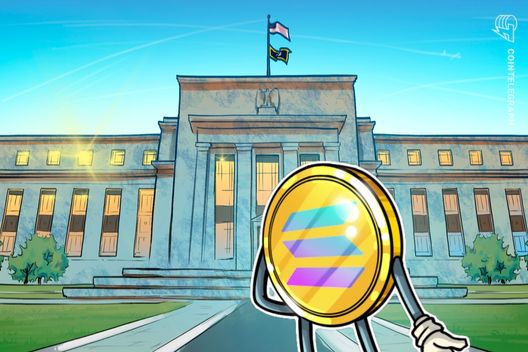In a week marked by shifting tides in the cryptocurrency market, investors appeared to take a cautious stance towards Bitcoin funds due to growing uncertainty surrounding U.S. policies. This wavering trust comes as regulatory discussions loom large, creating a complex environment for active traders and long-term holders alike.
Counterbalancing this trend, however, was the remarkable launch of Bitwise’s new Solana staking ETF, which experienced a robust influx of investments shortly after its debut. This indicates a continued interest in innovative financial products within the digital asset space, suggesting that while some investors are pulling back from Bitcoin, others are eagerly exploring opportunities in alternative cryptocurrencies such as Solana.
“The contrasting trends highlight the dynamic nature of the cryptocurrency landscape, with investor sentiment rapidly shifting in response to external factors, particularly regulatory developments,”
noted cryptocurrency analysts. As the market adjusts to changes, both traditional Bitcoin and emerging tokens like Solana will likely remain focal points of interest for market participants navigating this evolving ecosystem.
Investor Reactions to Bitcoin Funds and Emerging ETFs
Key points regarding the impact of US policy on Bitcoin investments and the rise of new financial products:
- Reduction in Bitcoin Fund Exposure:
Many investors are decreasing their investments in Bitcoin funds due to uncertainty surrounding US government policies.
- Impact of US Policy Uncertainty:
This uncertainty can lead to market volatility, affecting investor confidence and decision-making.
- Bitwise’s Solana Staking ETF Success:
The introduction of a new ETF focused on Solana has seen strong inflows, indicating increasing interest in alternative cryptocurrencies.
- Growing Trend of Staking Products:
The launch and popularity of staking ETFs may signal a shift in investor preferences towards yield-generating assets.
- Broader Market Implications:
The juxtaposition of declining Bitcoin investments with rising Solana interest may influence future allocation strategies among crypto investors.
Market Shifts: Bitcoin Funds Face Retreat While Solana Staking ETF Gains Traction
The latest movements in the cryptocurrency investment landscape reveal a notable dichotomy. While investors scaled back their allocations to Bitcoin funds due to ongoing uncertainty surrounding US regulatory policies, the launch of Bitwise’s Solana staking ETF has sparked significant interest, resulting in robust debut inflows. This situation highlights the competitive advantages and challenges currently facing various segments of the crypto investment market.
Competitive Advantages: The Solana staking ETF’s successful launch demonstrates an effective strategy to leverage enthusiasm for alternative cryptocurrencies. By offering a more innovative investment vehicle that caters to the growing acceptance of staking, the ETF attracts both seasoned investors looking for diversification and newcomers eager to enter the crypto market. Furthermore, its appeal lies in Solana’s strong performance metrics and scalability, which may provide investors with greater potential returns.
On the other hand, Bitcoin funds are encountering significant challenges. The prevalent concern regarding US policy—particularly related to regulation—creates a climate of uncertainty that is driving investors away. Many are opting for assets that offer clearer pathways and less regulatory risk, which further exacerbates the decline in interest for traditional Bitcoin investments.
Potential Beneficiaries and Challenges: The influx into the Solana staking ETF could serve innovators in the cryptocurrency space who are looking to establish trust and reliability. Asset managers who pivot to offering diverse staking options might find a ready market amid those seeking incomes from crypto holdings. Conversely, established Bitcoin fund managers may face difficulties in retaining clients and attracting new ones unless they adapt to the shifting landscape, possibly leading to increased competition and market fragmentation among traditional offerings.















